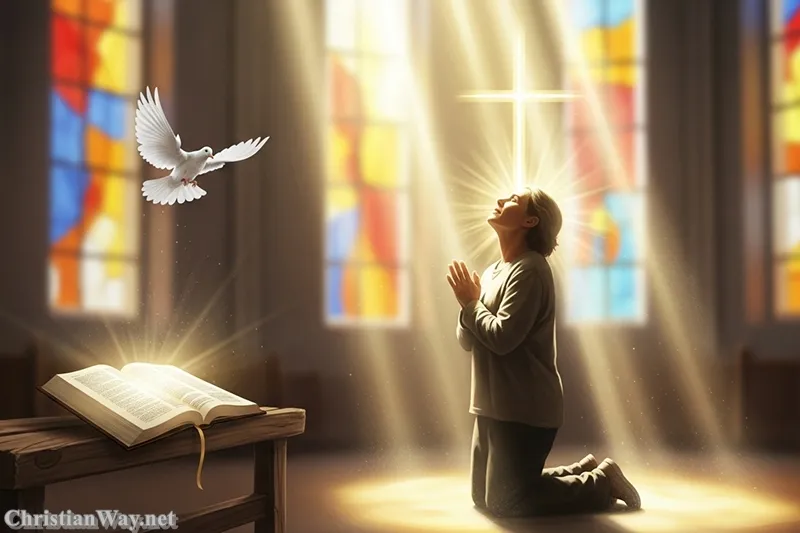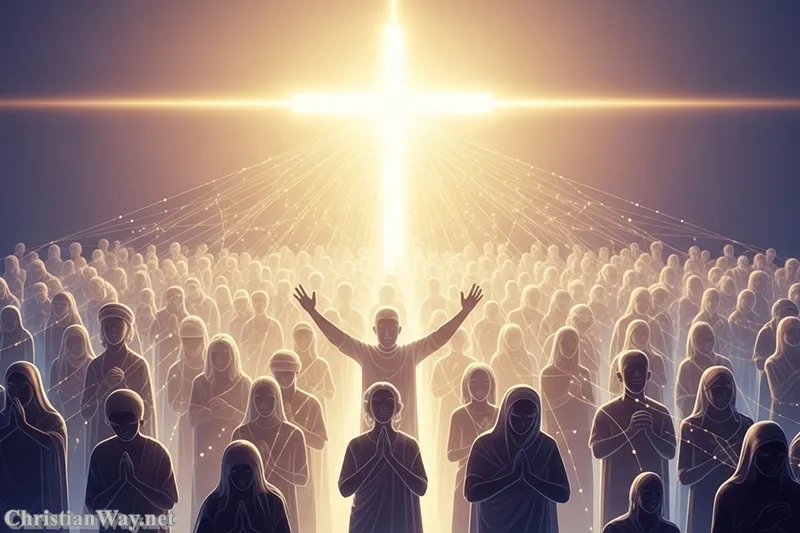Dear friends in Christ,
Every age of the Church has sought to understand the mystery of God’s sovereignty and the freedom of the human heart. Few names in Christian history are as deeply tied to this mystery as John Calvin and the theological vision that came to be known as Calvinism. To speak of Calvinism is to enter a conversation about grace, providence, human weakness, and divine power — a conversation that continues to shape Christian thought across the centuries.

At its heart, Calvinism is not merely a system of doctrines but a vision of God — a God who is utterly sovereign, infinitely wise, and perfectly just. It invites believers to see their salvation not as a product of human striving but as a miracle of divine mercy. In this reflection, we will explore the essence of Calvinism, its biblical roots, its historical influence, and how it continues to call hearts today to trust wholly in the will and grace of God.
The Roots of Calvinism in Scripture and Faith
Calvinism begins with the conviction that God is sovereign over all things — creation, redemption, and the destiny of every soul. This belief flows directly from Scripture:
“For from him and through him and for him are all things.
To him be the glory forever. Amen.” — Romans 11:36
For Calvin, this verse was not simply poetic theology; it was the heartbeat of all truth. Everything that exists — from the fall of a leaf to the salvation of a sinner — is encompassed in the providence of God. Nothing happens by accident; nothing escapes His will.
This absolute confidence in divine sovereignty led Calvin to emphasize God’s initiative in salvation. Humanity, wounded by sin, cannot save itself. Salvation must begin — and end — with God. Thus, the grace of God is not only sufficient but also irresistible: when God calls a person to Himself, His grace accomplishes what it intends.
The Five Points of Calvinism: A Framework of Grace
Though Calvin himself did not summarize his teaching in “five points,” these later became known as the TULIP — a helpful way to remember the central themes of Calvinist theology.
1. Total Depravity
Every human being, since the fall of Adam, bears the mark of sin. This does not mean that people are as evil as possible, but that sin has touched every part of our being — our mind, heart, and will. We are not capable, by our own strength, to choose God without His grace.
“There is no one righteous, not even one.” — Romans 3:10
2. Unconditional Election
God’s choice to save is not based on foreseen merit or good works but entirely on His mercy. Before the foundation of the world, God chose His people in Christ.
“He chose us in him before the creation of the world to be holy and blameless in his sight.” — Ephesians 1:4
3. Limited Atonement (or Particular Redemption)
Christ’s death was sufficient for all but effective for those whom God calls. In other words, Jesus did not merely make salvation possible — He accomplished it for His people.
4. Irresistible Grace
When God’s Spirit moves in the heart, no resistance can finally prevent His saving purpose. Grace does not force but transforms the heart, making the sinner freely desire God.
5. Perseverance of the Saints
Those whom God has truly called and justified will persevere in faith to the end. Salvation is secure, not because of human effort, but because God is faithful.
“He who began a good work in you will bring it to completion at the day of Jesus Christ.” — Philippians 1:6
The Glory of God as the Central Aim
In Calvin’s theology, the ultimate purpose of all things — creation, redemption, and human life — is the glory of God. The Christian faith is not centered on human satisfaction or achievement, but on the worship of God’s majesty.
Calvin wrote that “we are not our own; therefore, as far as possible, let us forget ourselves and all that is ours.” To live for God’s glory is to see every aspect of life — work, family, prayer, suffering — as a stage where God’s beauty and wisdom are revealed.
This perspective brings humility and freedom. If all things depend on God’s will, then nothing can separate us from His love. The believer finds rest not in self-assurance, but in divine assurance — the unchanging faithfulness of God.
The Human Heart and the Mystery of Freedom
One of the deepest questions Calvinism raises is about human freedom. If God’s will governs all, do human choices still matter? Calvin answered not with philosophical speculation, but with reverence for mystery. God’s sovereignty does not cancel human responsibility; rather, both coexist in the divine plan.
Just as Scripture holds these truths together — “Work out your salvation with fear and trembling… for it is God who works in you” (Philippians 2:12–13) — Calvin urged believers to trust that what seems paradoxical to the mind is harmonious in God’s wisdom.
Human freedom, in this light, is not the power to act apart from God, but the grace to act in communion with Him. True freedom is found when the will of man aligns with the will of God — when love makes obedience joyful.
Calvinism and the Protestant Reformation
The theology of Calvinism took root during the 16th century, amid the great spiritual awakening known as the Protestant Reformation. While Martin Luther began the movement with a focus on justification by faith, John Calvin gave it structure and theological depth. His writings, especially the Institutes of the Christian Religion, became one of the most influential theological works in Christian history.
From Geneva, Calvin’s vision of church order, moral discipline, and biblical preaching spread across Europe — to France, the Netherlands, Scotland, and later to the New World. The Reformed Churches, the Presbyterians, and other Protestant communities were deeply shaped by Calvin’s ideas.
Calvinism also inspired a strong sense of vocation — the idea that all of life is sacred, and every calling can glorify God. Whether farmer or scholar, ruler or servant, each person could serve Christ faithfully in their daily work. This vision helped shape not only theology but the very fabric of Western society.
The Comfort and Challenge of Sovereign Grace
Calvinism, when rightly understood, offers profound comfort to the believer. It proclaims a God who never loses His own — a Shepherd whose will is both mighty and merciful. It teaches that our salvation does not depend on fragile human will but on the steadfast love of God.
Yet it also challenges complacency. The doctrine of election is not meant to produce pride, but humility. The believer, aware of having been chosen by grace alone, must respond with gratitude and holiness. As Calvin wrote, “The elect are called to bear the image of Christ.”
The sovereignty of God, therefore, does not excuse sin but calls the believer into deeper obedience. The more we understand that all things are in God’s hands, the more we are moved to live faithfully under His reign.
Calvinism and the Ecumenical Conversation
Today, Calvinism continues to influence many Protestant and Evangelical traditions — yet it also invites dialogue with other branches of Christianity.
Catholics and Orthodox believers may differ in understanding of predestination or human cooperation with grace, yet all agree that salvation begins with God’s initiative. The unity of Christians does not rest on identical formulations, but on shared faith in Christ’s redeeming work.
In our time, Calvinism reminds the wider Christian family that grace is not an abstract concept, but the living power of God at work in the soul. Whether one emphasizes divine sovereignty or human response, all must bow before the mystery of a God who saves out of love.
Living Under the Majesty of God
To live as a Calvinist — or indeed as any Christian who trusts in divine providence — is to see every moment as held in God’s hands. Suffering and joy alike are woven into His purpose. Nothing is wasted; nothing is random.
This vision calls us to worship in all circumstances. When life confuses or wounds us, we can still say with the Psalmist:
“The Lord reigns; let the earth rejoice.” — Psalm 97:1
Faith in God’s sovereignty brings serenity in the storms of life. It reminds us that even our struggles are part of a larger story — the story of a God who turns all things toward His glory and our good.
Reflect and Pray
Beloved in Christ, the theology of Calvinism, though often debated, ultimately leads us back to awe. It teaches us to see salvation as the work of a mighty God whose mercy never fails, and to rest in His unchanging will.
As John Calvin wrote, “Our wisdom, in so far as it ought to be deemed true and solid wisdom, consists almost entirely of two parts: the knowledge of God and of ourselves.” To know God’s sovereignty is to know our dependence, and in that dependence to find peace.
Let us then trust the hand that holds all things — not with fear, but with faith; not with resistance, but with surrender. For the God who governs the stars also governs our hearts, leading them gently toward Himself.
May His sovereign grace be your strength, your peace, and your joy forever.
— Fr. John Matthew, for Christian Way





